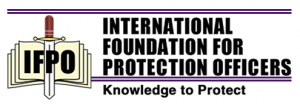Presenting a new feature here at the IFPO: The weekly professional protection officer quiz. Each week, five questions, culled from IFPO material, will be posted. The next week, the answers will be posted, along with five more questions. So test your knowledge of professional protection theory and practice and feel free to share it to others who might want to do the same. Enjoy and stay safe!
1. Next to the protection of employees, companies are interested in the protection of company assets. Possibly the most important asset worth protecting would be which of the following?
A. Reputational damage.
B. Expensive equipment loss.
C. Corporate vehicles including the corporate jet.
D. All the above.
2. Reputational damage can occur through which of the following?
A. Theft of customer information.
B. Loss of a senior executive to injury or death.
C. Tainting of the company brand name.
D. All of the above.
3. One step in risk management is mitigation. Mitigation means employing tactics that reduce the probability of a loss event occurrence and/or reduction of the amount of damage and cost of a loss event. The problem is that good mitigation programs must be designed to interfere with the operation of profitability of the enterprise.
A. True.
B. False.
4. A cost/benefit analysis must be conducted to evaluate the mitigation tactics applicable to any enterprise. The cost/benefit process involves all the following except
A. Evaluating the direct and indirect consequences of the expenditures.
B. Setting aside the monetary value of all costs and benefits resulting from the expenditures during the process and then pricing the costs later.
C. Setting aside consideration of expected future costs and revenues accruing from the expenditures.
D. All the above.
5. Asset protection through risk mitigation typically involves a concept of layered protection. The principle behind layered protection consists of which of the following?
A. Detection.
B. Deterrence.
C. Arrest.
D. Delaying.
_____________________________________________________________
The International Foundation for Protection Officers (IFPO) is dedicated to providing meaningful and cost effective security training for security guards and protection officers.
We believe that education is a necessary and essential part of professional security training and the security officer’s background. IFPO serves individuals, security companies, and organizations that have their own private security staff. Our students and members benefit from the recognition and standing that the prestigious IFPO certification conveys.
LIKE and FOLLOW the IFPO on Facebook!
International Foundation for Protection Officers Mission Statement
Mission Statement Part I.
The International Foundation for Protection Officers provides professional learning opportunities for security practitioners, to impart the knowledge, skills, and competencies required to maximize job performance and enhance career potential.
Purpose: to make a positive difference in the quality of the participant’s job performance and elevate the professional status of students who partake of our learning opportunities.
Business: to supply committed security practitioners with a quality education to help achieve their highest potential and provide recognized accreditation for successful completion of educational goals.
Values: commitment, integrity, responsibility, and standards of excellence, provide the platform that supports our journey as we pursue our mission.
Vision Statement
Commitment to Excellence: To be the recognized center of excellence and primary provider of education and training products and services to the security industry.
Mission Statement Part II.
“The International Foundation for Protection Officers is committed to the support and professional development of protection officers and supervisors. Through advocacy, promoting training standards, and providing accessible training, education and certification opportunities, we seek to enhance their professional standing as well as increase and diversify the value of the vital services they provide.”


